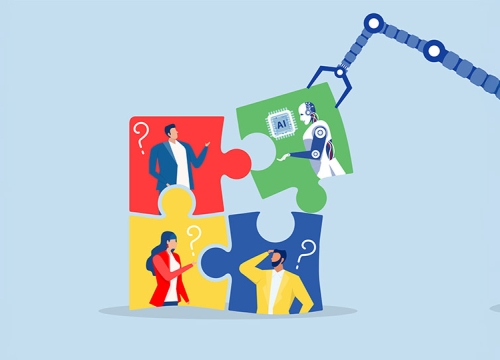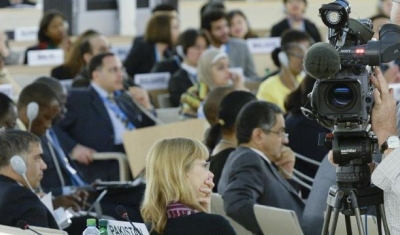AI for human rights: Smarter, faster, fairer monitoring
Event


Adobe Stock
As artificial intelligence (AI) technologies become increasingly embedded in our societies, their potential to solve global challenges is both exciting and complex. AI tools can support faster data analysis, help uncover patterns in large datasets, and expand the reach of human rights work. At the same time, their application in sensitive contexts raises important questions about ethics, accountability, and the balance between automation and human judgment.
This workshop offers a dynamic space to explore how AI can be leveraged to make human rights monitoring smarter, faster, and fairer—while ensuring that such use is grounded in human rights values and guided by critical reflection. Participants will engage with both the opportunities and the boundaries of AI, emphasizing the importance of human–AI collaboration, transparency, and inclusive design.
Gathering thought leaders from law, AI ethics, international policy, human rights monitoring, and data science, the session will combine a high-level panel with interactive group exercises, both human-to-human and human-to-AI. It aims to foster dialogue between human rights professionals and AI experts, spark creative problem-solving, and co-develop ideas for digital human rights tools and databases (DHRTTDs) that are both innovative and responsible.
This workshop is organized with the kind support of the Friedrich Naumann Foundation.
Objectives
- Explore the real-world applications and limitations of AI in human rights and progress tracking for global goals, and when human expertise remains essential.
- Facilitate meaningful exchanges between human rights stakeholders and AI experts to build shared language, trust, and use cases.
- Identify opportunities for AI to support monitoring efforts, while addressing concerns related to ethics, inclusivity, and practical implementation.
- Co-develop solutions that integrate the strengths of both human insight and AI capacity, with a focus on supporting DHRTTDs.
- Promote understanding of the need for standardization, interoperability, and rights-based design principles in the development of AI for human rights
Opening remarks
- Michaela Lissowsky, Head, Friedrich Naumann Foundation Human Rights Hub in Geneva
Panel
- Irene Khan, UN Special Rapporteur for Freedom of Opinion and Expression
- Danna Ingleton, Executive Director, HURIDOCS
- Alexandre Pinho, Global Lead for the United Nations and International Development Sector, Microsoft
- Peggy Hicks, Director of the Thematic Engagement, Special Procedures and Right to Development Division, OHCHR
- Yu Ping Chan, Head, Digital Partnerships and Engagement, Chief Digital Office, United Nations Development Programme (UNDP)
Moderator
- Felix Kirchmeier, Executive Director, Geneva Human Rights Platform
Participation is limited to 50 individuals. To attend the workshop, please register for a general pass to the AI for Good Global Summit at the following link: https://aiforgood.itu.int/summit25/registration/
The AI for Good page for the workshop can be found here: https://aiforgood.itu.int/event/ai-for-human-rights-smarter-faster-fairer-monitoring/










